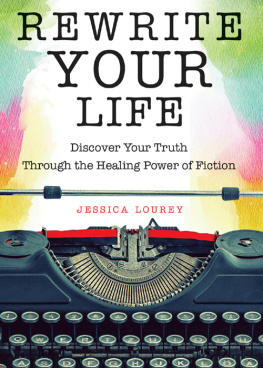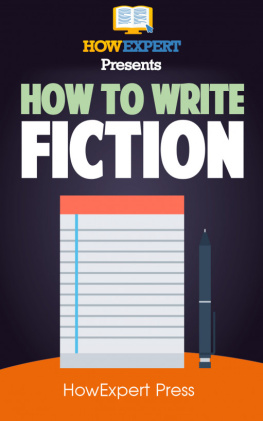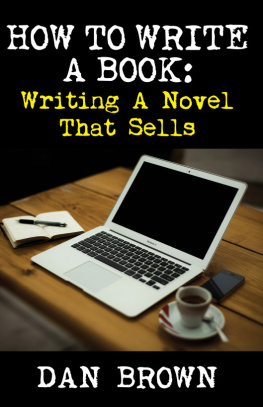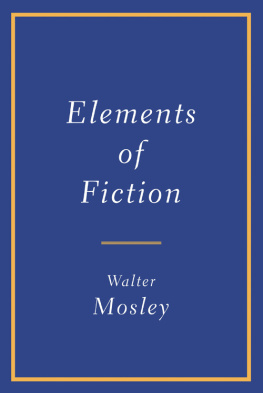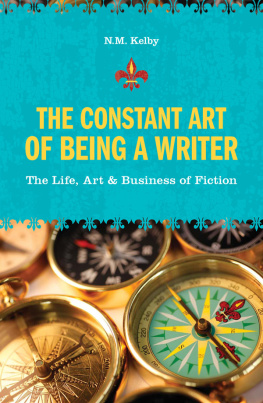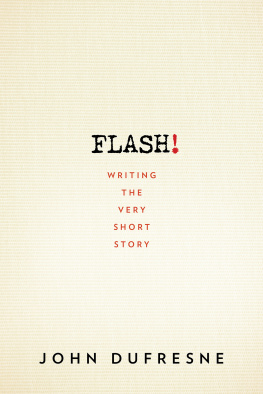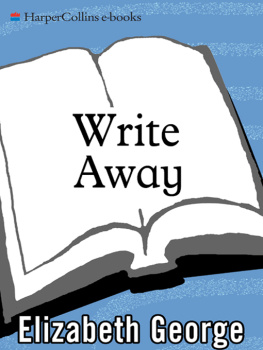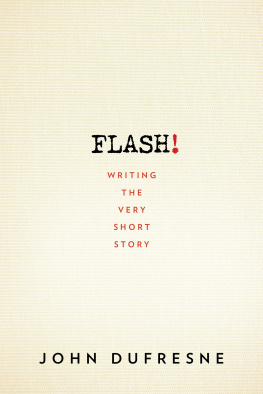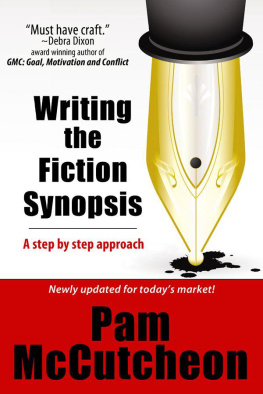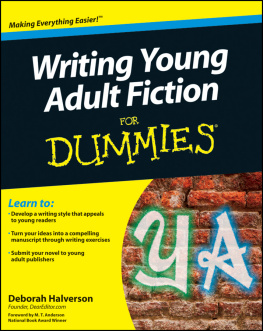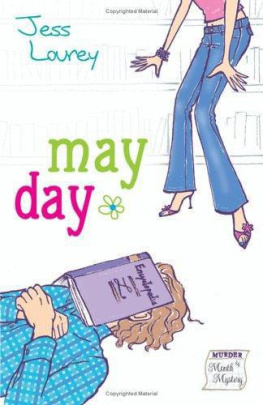
Praise for Rewrite Your Life
My favorite kind of self-help book: irreverent, personal, and superbly useful.
JEN MANN, New York Times best-selling author of People I Want to Punch in the Throat
A lively exploration of writing's therapeutic value and an encouraging invitation to apply it to your life.
KENDRA LEVIN, author of The Hero is You
On occasion a gem of a book comes along. One that sticks with us and helps us to remember, we can rewrite our life. That our journey is filled with plot twists we never expected and that we can gain insights and perspective by exploring those unexpected events, or story food through writing. Rewrite Your Life is just such a book. You will walk away with an understanding of how to heal through writing fiction and have the tools you need to make a difference in your own life and everyone your life touches.
LYSSA DANEHY DEHART, MSW, LICSW, PCC, author of the blog StoryJacking
Part how-to, part memoir, part so-funny-that-reading-it-in-public-was-difficult-without-disturbing-others, this is a book to give anyone who wants to be a writer, or a better one, anyone who thinks they have a story to tell. Which is everyone. Buy this book for everyone. Except me, I already have one and no, you can't borrow it.
NORA MCINERNY PURMORT, author of It's Okay to Laugh: (Crying Is Cool Too) and host of the Terrible, Thanks for Asking APM podcast

This edition first published in 2017 by Conari Press, an imprint of
Red Wheel/Weiser, LLC
With offices at:
65 Parker Street, Suite 7
Newburyport, MA 01950
www.redwheelweiser.com
Copyright 2017 by Jessica Lourey
All rights reserved. No part of this publication may be reproduced or transmitted in any form or by any means, electronic or mechanical, including photocopying, recording, or by any information storage and retrieval system, without permission in writing from Red Wheel/Weiser, LLC. Reviewers may quote brief passages.
The poem Tell all the truth but tell it slant J 1129/F 1263 from THE POEMS OF EMILY DICKINSON: READING EDITION, edited by Ralph W. Franklin, Cambridge, Mass.: The Belknap Press of Harvard University Press, Copyright 1998, 1999 by the President and Fellows of Harvard College. Copyright 1951, 1955 by the President and Fellows of Harvard College. Copyright renewed 1979, 1983 by the President and Fellows of Harvard College. Copyright 1914, 1918, 1919, 1924, 1929, 1930, 1932, 1935, 1937, 1942 by Martha Dickinson Bianchi. Copyright 1952, 1957, 1958, 1963, 1965 by Mary L. Hampson is reprinted with the permission of Harvard University Press.
ISBN: 978-1-57324-693-4
Library of Congress Cataloging-in-Publication Data available upon request
Cover design by Jim Warner
Cover image watercolor Taira / shutterstock
Setting the Circle diagram concept created by Tony Van Den Einde
Interior by Kate Kaminski, Happenstance Type-O-Rama
Typeset in Adobe Garamond Pro and American Typewriter
Printed in the United States of America
M&G
10 9 8 7 6 5 4 3 2 1
www.redwheelweiser.com/newsletter
To Rex Veeder, who encouraged this.
I am forever grateful.
Contents
Introduction
TRUTH IN FICTION
Tell all the Truth but tell it slant
Success in Circuit lies
Too bright for our infirm Delight
The Truth's superb surprise
As Lightning to the Children eased
With explanation kind
The Truth must dazzle gradually
Or every man be blind
Emily Dickinson
On September 13, 2001, I stood in front of my multicultural lit class assigning a response essay. The class was small, five students, all enrolled in my Technical Communication program. Because I taught all but one of their courses, we'd become a sort of tribe. I remember being excited about the assignment. I don't remember what I was wearing. I do remember I was growing my hair out and that I was worried about the pregnancy weight I was putting on and whether or not something I'd elected to call Bonus Lunch was doing me any favors. I remember being tired. It was a Thursday.
The door opened, and the college's office administrator stepped into my classroom. It was a first. She was unable to meet my eyes.
Can you please come to the Dean's office?
Yup. I grabbed my briefcase. I knew I wasn't coming back.
# # #
Our final conversation thirty-six hours earlier had ended exactly like this:
HIM: You're beautiful.
ME: Silence.
HIM: I love you.
ME: I don't think that means the same thing to you as it does to me.
We'd been married for twenty-four days. I was three months pregnant. We'd timed it so that I could have the summer off after the baby was born, not expecting that we'd nail it on our first try. The University of Minnesota conference I'd been driving to that morning had been unexpectedly canceled as college campuses all over the country shut down. America was under attack, we were told.
I returned home to find something I hadn't expected to find.
# # #
There were two plainclothes detectives sitting in the Dean's office. They rose when we entered. The office administrator disappeared. I was with strangers.
Is my daughter all right? The question was a morbid courtesy in that overexposed moment, an invitation for the detectives to deliver good news before they leveled my world. My baby girl was three, and it was naptime in the day care across the street. I knew she was fine because I would have known if she wasn't.
I also knew that my husband had killed himself.
I had known I would be here, or somewhere like here, since the fist of blackbirds had dived at my car as I'd returned from the canceled U of M conference two days earlier. It was the blackbirds' warning that had forced me online to search his history, the coldness of their black bodies blocking out the sun that had warned me my life was never going to be the same again.
But I couldn't have known.
He was not depressed. He was a successful Department of Natural Resources ecologist with a family who loved him. Tall, dark-eyed, with a contagious smile and a meticulous work ethic, he baked pies for hospice care fundraisers and coached the local youth soccer league. We were newlyweds with a baby on the way. And so I took the chair the detectives offered, and I watched their faces, and I felt every corner of me shut down except my eyes and my ears. These organs became disconnected recording devices, and so while I can recall the entire conversation, it doesn't mean any more now than it did then. Just words.
Do you know where your husband is?
Um, we had a fight two days ago. He drove to his old house, the one we have on the market? I haven't heard from him since.
They exchanged glances. Their suits were immaculate. Both men looked like what I imagined New York detectives look like, polished as stones. The detective who drew the short straw adjusted his collar. Your husband killed himself.
I felt the baby kick, or did I just feel kicked? When?
He was found today, by a coworker. There was a murder-suicide in the same DNR office two years ago, and they were worried for you and your daughter.
He killed himself today?
He was found today.
This was important. If he killed himself immediately after our argument, that meant I'd been thinking about a dead man, emailing a corpse, for two days. But I already knew the truth of that, too.
Next page
